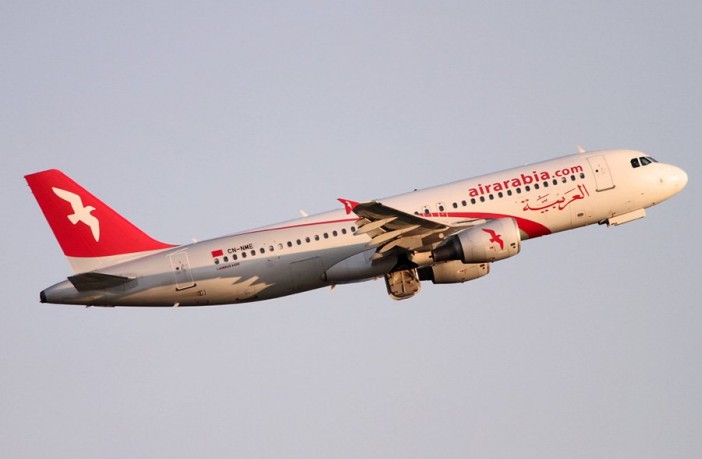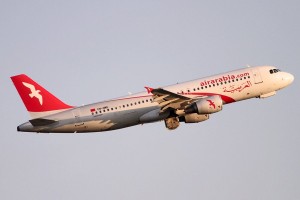Bloomberg
by Deena Kamel
Air Arabia PJSC has renewed plans to expand its fleet, with the biggest discount carrier in the Persian Gulf and North Africa encouraged as pressure on fares eases, boosting prospects in Morocco and other bases.
The airline, an Airbus SE A320 operator, could reach a decision on new jets as early as this year or into 2018, Chief Executive Officer Adel Ali said in an interview in Sharjah, United Arab Emirates, where it is based.
Air Arabia’s net income fell 10 percent to 103 million dirhams ($28 million) in the first quarter, extending declines from last year as the low oil price weighed on Gulf economies, the Egyptian pound fell and concerns about terrorism hurt demand. Bookings from Morocco, which last suffered a major attack in 2011 but remains subject to foreign advisories, suggest the situation is easing, Ali said.
“As we go into the second quarter and then summer I’m optimistic that things will be much brighter,” the CEO said. “We’ve been growing pretty fast in our hub in Morocco. It’s been doing very well for us. Morocco this year will probably be our key fast-growing market.”
Shares of the U.A.E.’s only listed airline have declined 23 percent this year, valuing it at 4.8 billion dirhams. They slumped 9.4 percent, the most since 2013, on Feb. 9 after the company reported its first quarterly loss on record for the final three months of 2016.
Air Arabia currently operates a fleet of 47 A320s, according to its website, with the planes distributed across bases in Sharjah, Jordan, Egypt and Morocco, where it serves six cities and plans to station eight aircraft this summer, up from five previously, Ali said.
Rates for leased aircraft are also looking attractive, he said, providing Air Arabia with an opportunity to source jets more quickly if required. The CEO had said in 2015 that he aimed to place an order for new aircraft by the end of 2016, while declining to specify how many and of what type.
Seat-occupancy levels declined only slightly to 81 percent in the first quarter as Air Arabia cut fares to defend its market share, it said Sunday. Ali said he’s now “more optimistic” about yields, or prices, as the Russian market also revives and Egypt shows signs of a recovery after the country’s currency float.
“We’re seeing people continue to travel,” Ali said. “That’s a positive signal for all of us. We’ll manage the yield and the cost as long as people are traveling.”








